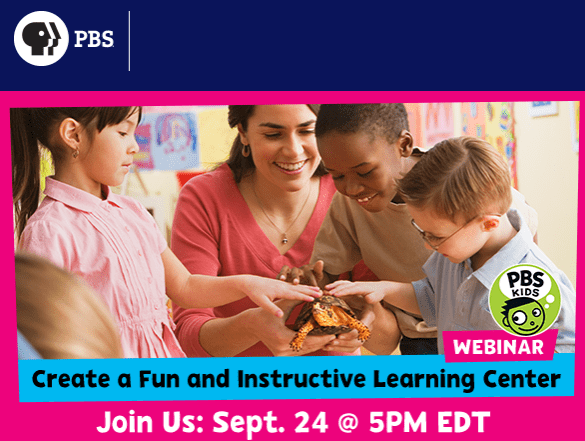GCU TEC-516 Insights
As our GCU Graduate Course in Instructional Theories and Models in Technology Education comes to a close, here are some of Insights Tweets from this term. The Class Hashtag is #GCUTEC516 and the teacher’s names have aliases.
#GCUTEC516 Insight TeacherR-“It’s amazing how much collaboration helps…when developing lessons & learning techniques/strategies/resources-a good practice to implement in the classroom too- Student collaboration is just as beneficial to their education & learning environment”
#GCUTEC516 TeacherJ Insight-“Education & learning environments benefit from positive online collaboration-It’s amazing in promoting learning-Ss/Ts alike should participate in collaboration-it’s crucial for life-long learners.”
#GCUTEC516 TeacherT Insight- [Our new superintendent] ”gave everyone a ‘district’ hashtag to use and one specific for each school. He was our first superintendent in 20 years that understood and embraced technology. Now, I can’t imagine a life without Twitter.”
#GCUTEC516 TeacherC Insight-“Giving students resources, such as Digital Citizenship Resources for the Home from Common Sense Media & having them look over the information w/ parents…will let them know the importance of creating safe environments & interactions on the internet.”
#GCUTEC516 TeacherE Insight-”Model digital citizenship online w/both an experiential & proactive approach w/students (Davis, 2017)- Proactively teaching digital citizenship provides students w/skills to handle situations that occur commonly w/tech or in digital environment.”
#GCUTEC516 TeacherV Insight- “Just like any other skill we teach in class, we must make sure that our students are explicitly taught foundational digital citizenship skills. Not only must they be taught in class but teachers must lead by example and model these behaviors.”
#GCUTEC516 TeacherM Insight- “Heick (2019) also makes some really good comparisons between digital citizenship as well as regular citizenship and how they both correlate.”
#GCUTEC516 TeacherL2 Insight- TeacherL Insight-“According to Heick (2019) the big idea is ‘treating people, places & spaces w/respect.’ As educators, we establish rules, guidelines, social contracts & norms in our classrooms & schools to ensure that teachers/colleagues/students practice respect.”
#GCUTEC516 TeacherL4 Insight- “As most teachers know, lessons don’t always go as planned-something unexpected always seems to come up & present challenges. However, w/ proper assessment & evaluation of instructional practices, changes can be made to instruction to address & overcome challenges.
#GCUTEC516 TeacherK2 Insight- “Puentedura’s SAMR Model offers different levels of technology inclusion-Because there’s different levels in this model, I can start at a lower level & then progress as I want to include technology into my daily lessons.”
#GCUTEC516 TeacherL3 Insight- “Prior knowledge is so important in a young learners world; it is the basis for everything they will soon learn. Prior knowledge is the starting point for their learning & without it they would have a hard time guiding their own learning (Lucks, 1999).”
#GCUTEC516 TeacherB1 Insight- “The constructivist model can be very useful for Ss to become owners of their learning by activating prior knowledge. We always have to expose our Ss to how what they’re learning can be used in the real-world, it’s all about making connections.”
#GCUTEC516 TeacherT3 Insight- “Teachers should be good role models. If we do something the right way, our students are more likely to follow our behavior. It is important that we keep showing by example throughout the year. This can be by explaining as well as reminders.”
#GCUTEC516 TeacherL1 Insight- “[Instructional] coaches must be able to adapt/model a positive attitude-They should embrace new programs & tech & willingly implement them in their instruction-Adaptability is an essential quality of not only instructional coaches but also educators”
#GCUTEC516 TeacherT2 Insight- “We want [to] set a good example for our students so they are aware of how to use others work correctly. Teaching students how to cite sources correctly will keep them on the right track.”
#GCUTEC516 TeacherA Insight- “Helping [peer teachers] identify better [ethical technology practices] builds a level of trust with your peers that you did not have. It also ensures that the students will learn the right way.”
#GCUTEC516 TeacherB2 Insight- “As tech coach, I want to motivate & encourage teachers to use tech to help our students. Today’s students are entering a world of unknown opportunities/challenges/pitfalls–tech is a big part of these opportunities (Moreillon & Fontichiaro, 2008).”
#GCUTEC516 TeacherI Insight- “Interestingly people often think that because it’s an electronic that teens will automatically like it. It still has to be relevant and meaningful to them.”
#GCUTEC516 TeacherK1 Insight- “The easiest way to identify comfort level and interest of tech w/ a peer in my district is through simple conversation & observation. It’s important to recognize that tech can be used to transform teaching & learning but requires Ts to continue learning new tech (King, 2003).
#GCUTEC516 TeacherD Insight-“It’s the responsibility of educators to try & keep up w/ anything that potentially benefits students-Keeping up w/ every new program or new gizmo may not be realistic but once an item has been proven to be educationally useful Ts should learn more about it”
#GCUTEC516 TeacherK3 Insight-“Before we begin using computers, I want to teach my students about Digital Citizenship. It’s such a coincidence that [GCUTEC516 covered] Digital Citizenship at the same time as I am thinking about my Digital Citizenship lessons for my students!”





